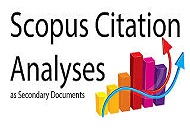Efektivitas Penerapan Model Pembelajaran Think Talk Write (TTW) Secara Online Terhadap Literasi Informasi Siswa SMA
DOI:
https://doi.org/10.33394/jk.v7i3.3558Keywords:
Information Literacy, Think Talk Write, Online Learning.Abstract
This study aims to analyze the effectiveness of the Think Talk Write (TTW) learning model which is carried out online on the information literacy of high school students. This study used a quasi-experimental method with a non-equivalent control group pretest-posttest design. The study was conducted on students of class XI IPA SMA Negeri 1 Labuapi consisting of 36 people. Research data were in the form of information literacy scores obtained from the application of pretest and posttest. The data analysis technique used in this study was covariance analysis (ancova). The results showed that the class that applied TTW learning had an average information literacy posttest score of 3.26 which was higher than the conventional class with an average gain of 2.97. The conclusion is that the application of the TTW learning model is more effective than the conventional learning model in terms of achieving student information literacy.
References
Abidin, Z., Rumansyah., & Arizona, K. (2020). Pembelajaran Online Berbasis Proyek Salah Satu Solusi Kegiatan Belajar Mengajar di Tengah Pandemi Covid-19. Jurnal Ilmiah Profesi Guru, 5(1), 64-70.
Amellia, K. (2015). Efektivitas Penggunaan Model Discovery Learning Terhadap Peningkatan Kemampuan Literasi Informasi. Skripsi. Universitas Pendidikan Indonesia.
Armini, N. P S., Wibawa, I. M. C., & Murda, I N. (2017). Pengaruh Model Pembelajaran Think Talk Write Terhadap Hasil Belajar IPA Pada Siswa Kelas IV SD. E-Journal PGSD Universitas Pendidikan Ganesha Mimbar PGSD, 5(2), 1-10.
Cahyadi, D. A. (2018). Kemampuan Literasi Informasi Peneliti Dalam Penulisan Karya Ilmiah di Loka Litbangkes Pangandaran. Jurnal Kajian Informasi dan Perpustakaan, 6(2), 139-150. doi: https://dx.doi.org/10.24198/jkip.v6i2.17774
Firman, & Rahman, S R. (2020). Pembelajaran Online di Tengah Pandemi Covid-19. Indonesian Journal of Education Science, 2(2), 81-89.
Harjanto, T., & Sumunar, D. S. E. W. (2018). Tantangan Dan Peluang Pembelajaran Dalam Jaringan: Studi Kasus Implementasi Elok (E-Learning: Open For Knowledge Sharing) Pada Mahasiswa Profesi Ners. Jurnal Keperawatan Respati Yogyakarta, 5, 24-28.
Himawan, D. (2014). Pengantar Literasi Informasi: Pelatihan Literasi Informasi di Perpustakaan Institut Pertanian Bogor. Diakses 25 Juli 2020 dari https://repository.ipb.ac.id/jspui/bitstream/123456789/81255/2/LITERASI%20INFORMASI%20PENGANTAR.pdf.
Ilhamdi, M. L., & Mertha, I.G. (2020). Penerapan Model Pembelajaran Kooperatif Tipe Investigasi Kelompok dalam Pembelajaran Biologi Umum. Jurnal Pijar MIPA,15(1), 20-26.
Iskandar. (2016). Literasi Informasi: Perspektif Pustakawan. JUPITER, 15(1), 10-15.
Kusunarningsih, S. (2018). Hubungan Antara Kompetensi Literasi Informasi dengan Kemampuan Menulis dengan Prestasi Belajar Mahasiswa Universitas Airlangga. Diakses 05 Maret 2021 dari http://repository.unair.ac.id/74754/3/JURNAL_Fis.IIP .34%2018%20Kus%20h.pdf
Mubaroq, R A., Handhika, J., & Huriawati, F. (2018). Peran Pendidik dan Ilmuwan Sains Dalam Menyongsong Revolusi Industri 4.0. Universitas PGRI Madiun. Diakses 02 Desember 2019 dari http://E-Journal.Unipma.Ac.Id/Index. Php/Snpf.
Pattah, S. H. (2014). Literasi informasi: Peningkatan kompetensi informasi dalam proses pembelajaran. Jurnal Ilmu Perpustakaan dan Kearsipan Khizanah Al=Hikmah, 2(2), 117-128.
Putriani, I., Suwignyo, H., & Hasanah, M. (2017). Pembelajaran Literasi pada Siswa Sekolah Dasar Melalui Strategi Think Talk Write (TTW). Transformasi Pendidikan Abad 21(6), 715-720.
Riski, L, Winoto, Y., & Asep Saeful Rohman, A.S. (2018). Literasi Informasi Siswa Sekolah Menengah Pertama dalam Pengerjaan Tugas Sekolah. Bibliotika: Jurnal Kajian Perpustakaan dan Informasi, 2(2), 132-140.
Silvana,T., Fitriawati, & Saepudin, E. (2017). Studi Tentang Kemampuan Literasi Informasi Di Kalangan Siswa Menengah Pertama, Ejournal.UPI, 7(2), 17-28. Diakses 03 Maret 2021 dari https://ejournal.upi.edu/index.php/edulib/article/download/9488/5876
Suarny, L & Jumino. (2019). Literasi Informasi Mahasiswa Dalam Penulisan Sitiran Karya Tulis Ilmiah: Studi Kasus Unit Pelaksana Kegiatan Research Incubator Centre Fakultas Sains dan Matematika Universitas Diponegoro. Diakses 05 Maret 2021 dari https://ejournal3.undip.ac.id/index.php/jip/article/download/23178/21203
Suparya. (2018). Pengaruh Model Pembelajaran Kooperatif Tipe Think Talk Write (TTW) Terhadap Hasil Belajar Dan Kemampuan Berpikir Kritis Pada Pembelajaran IPA Di Sekolah Dasar. Widyacarya. 2(2), 19-24.
Suryadi, D. (2019). Pengenalan Joho Literasi. Universitas Muhammadiyah Yogyakarta, Indonesia: LP3M.
Suwanto, S. A. (2015). Analisis Literasi Informasi Pemakai Taman Bacaan Masyarakat, Jurnal Kajian Informasi dan Perpustakaan, 3(1), 89-100
Tauhidah, D., Amalina, N. S., & Suwono, H. (2017). Peningkatan Literasi informasi dan Keterampilan Menulis Melalui Penerapan Model Think Talk Write (TTW) pada Mahasiswa Pendidikan Biologi Mata Kuliah Metodologi Penelitian di Universitas Negeri Malang. Prosiding Nasional Hayati V, Malang, Indonesia: Universitas Negeri Malang.
Downloads
Published
How to Cite
Issue
Section
Citation Check
License
License and Publishing AgreementIn submitting the manuscript to the journal, the authors certify that:
- They are authorized by their co-authors to enter into these arrangements.
- The work described has not been formally published before, except in the form of an abstract or as part of a published lecture, review, thesis, or overlay journal.
- That it is not under consideration for publication elsewhere,
- That its publication has been approved by all the author(s) and by the responsible authorities – tacitly or explicitly – of the institutes where the work has been carried out.
- They secure the right to reproduce any material that has already been published or copyrighted elsewhere.
- They agree to the following license and publishing agreement.
Authors who publish with JK agree to the following terms:
- Authors retain copyright and grant the journal right of first publication with the work simultaneously licensed under a Creative Commons Attribution License (CC BY-SA 4.0) that allows others to share the work with an acknowledgment of the work's authorship and initial publication in this journal.Â
- Authors are able to enter into separate, additional contractual arrangements for the non-exclusive distribution of the journal's published version of the work (e.g., post it to an institutional repository or publish it in a book), with an acknowledgment of its initial publication in this journal.
- Authors are permitted and encouraged to post their work online (e.g., in institutional repositories or on their website) prior to and during the submission process, as it can lead to productive exchanges, as well as earlier and greater citation of published work.
- Open Data Commons Attribution License, http://www.opendatacommons.org/licenses/by/1.0/ (default)

This work is licensed under a Creative Commons Attribution-ShareAlike 4.0 International License.








